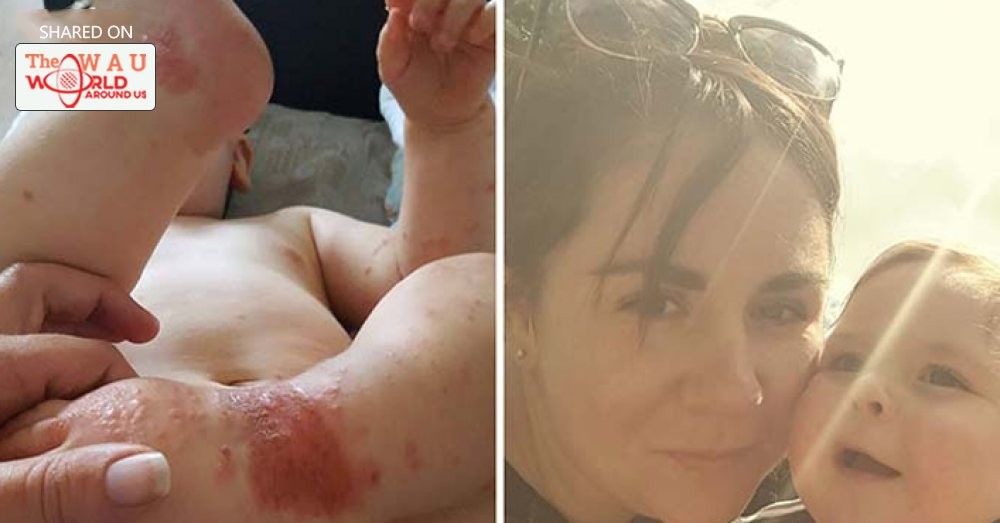Babies are irresistibly cute, yes, but the next time you are overcome with desire to go near a baby, or worse, kiss them, stop for a second to think.
If you’re wondering why you should bother to do that, here’s a real-life testimony from one mom, who has taken to Facebook to warn everyone what could happen when people kiss babies.
The photo Amy Stinson posted shows her baby Oliver’s skin marred with red and angry rashes.
According to a Scary Mommy report, Amy first brought her son to the doctors after the rashes began to appear, thinking that it was chicken pox.
It was not.
At the doctor’s she was told that Oliver had herpes.
As a result, Oliver ended up in the hospital. He stayed a total of four days while on an IV drip.
“This is what happens 2 babies when been in contact with a coldsore,” her photo’s caption says. “Oliver now has the herpes virus and will have this for life. Think before you kiss a baby next time.”
This isn’t the first incident of its kind.
In 2015, mom Claire Henderson posted photos of her baby Brooke on Facebook as well. She said that her baby contracted herpes after she received a kiss from a visitor who had it.
“There are two forms of herpes: herpes simplex virus type 1 (HSV-1) and type 2 (HSV-2),” Meredith Bland says in her Scary Mommy report. “HSV-2, which is sexually transmitted, is the one most of us think of when we hear the word, ‘herpes.’”
In a WHO report, it estimated that at least 67% of people worldwide are afflicted with HSV-1.
The most common manifestation of HSV-1 is the appearance of cold sores that come and go. Most people with HSV-1, however, are asymptomatic and don’t know they have it.
“Again, it is highly unlikely for people without symptoms to pass on the infection, but anyone with a cold sore or fever blister should not have contact with a baby,” Meredith says.
Babies aged three months and below are more susceptible to herpes because they are not yet equipped with a sophisticated immune system like adults.
But perhaps the scariest part about herpes is that in babies it can infect the brain , eyes and other organs. It can also cause a life-long disabilities and even death.
Following up on her son’s condition, Amy has revealed that Oliver is doing well, and that his condition has since improved. Sadly, his herpes will stay with him for the rest of his life.
Share This Post















